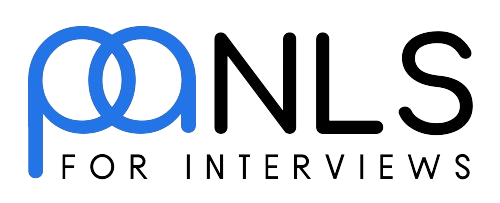Mastering the Art of Interview Formats: A Complete Guide for Candidates and Recruiters

Understanding the interview format is a crucial element for both candidates and recruiters. The format determines how the interview will unfold, what kind of questions will be asked, and how responses will be evaluated. A well-defined interview format helps create a structured and efficient process for recruiters while allowing candidates to prepare more effectively. Whether you’re a job seeker looking to excel in an interview or a recruiter aiming to streamline the hiring process, knowing the interview format is key to ensuring success.
For candidates, understanding how to introduce yourself in interview format and how to tailor responses in specific formats is essential. For recruiters, having a clear understanding of how to format an interview can significantly improve the interview process, making it fairer and more efficient. In this guide, we’ll dive deep into various interview formats, explore their advantages and disadvantages, and provide actionable tips for both candidates and recruiters. Plus, stay tuned for an introduction to a tool that can simplify and enhance your interview process!
What is an Interview Format?
An interview format refers to the structure of the interview, including how the questions are asked, how answers are evaluated, and the medium through which the conversation takes place. The interview format plays a pivotal role in shaping both the candidate’s experience and the recruiter’s ability to assess qualifications effectively. It sets the stage for everything from the types of questions asked to how responses are evaluated, influencing the overall success of the interview process.
There are two main categories of interview formats:
- Content-based formats, where the focus is on the questions themselves and how they assess the candidate’s skills and qualifications.
- Medium-based formats, which refer to the method of conducting the interview, whether in-person, over the phone, or via video.
Knowing how to format an interview properly ensures that the process runs smoothly and that both parties can gather the necessary information to make informed decisions. It also ensures that the interview is fair and consistent across all candidates, which is especially important for companies with high-volume hiring needs.
Popular Types of Interview Formats (With Examples)
There are many types of interview formats, and choosing the right one depends on the role, the organization’s goals, and the resources available. Below are the most common interview formats used in hiring today:
- Structured Interviews
- Pros: Standardized format, ensures consistency across candidates, helps with objective evaluations.
- Cons: Can feel stiff and impersonal, may not allow candidates to fully express their creativity.
- Best for: Roles that require specific technical or job-related skills where consistent evaluation is key.
- Pros: Standardized format, ensures consistency across candidates, helps with objective evaluations.
- Unstructured Interviews
- Pros: Allows for natural conversation, can provide deeper insights into the candidate’s personality and problem-solving abilities.
- Cons: Difficult to compare candidates objectively, may lead to bias.
- Best for: Creative roles or senior positions where understanding a candidate’s thought process and fit with company culture is important.
- Pros: Allows for natural conversation, can provide deeper insights into the candidate’s personality and problem-solving abilities.
- Semi-Structured Interviews
- Pros: Offers a balance between structured and unstructured formats, allowing flexibility while maintaining consistency.
- Cons: May still result in some subjectivity in evaluations.
- Best for: Mid-level positions or roles requiring a combination of technical and interpersonal skills.
- Pros: Offers a balance between structured and unstructured formats, allowing flexibility while maintaining consistency.
- Behavioral Interviews
- Pros: Focuses on past experiences to predict future behavior, which can help identify high-performing candidates.
- Cons: Requires candidates to recall specific instances from their past, which can be difficult for some.
- Best for: Leadership and managerial roles, or roles where past behavior can indicate future success.
- Pros: Focuses on past experiences to predict future behavior, which can help identify high-performing candidates.
- Technical Interviews
- Pros: Tests candidates’ technical abilities directly and provides a clear evaluation of their skill set.
- Cons: Doesn’t assess cultural fit or interpersonal skills well.
- Best for: IT, engineering, or technical roles where specialized knowledge is key.
- Pros: Tests candidates’ technical abilities directly and provides a clear evaluation of their skill set.
- Case Study Interviews
- Pros: Excellent for evaluating problem-solving abilities, analytical thinking, and creativity.
- Cons: Can be stressful and time-consuming for both the candidate and the interviewer.
- Best for: Consulting, strategy, or problem-solving roles.
- Pros: Excellent for evaluating problem-solving abilities, analytical thinking, and creativity.
- Panel and Group Interviews
- Pros: Multiple interviewers provide a broader perspective, fast-tracks evaluation.
- Cons: Can be intimidating for candidates, may create a less personal atmosphere.
- Best for: Senior leadership roles, or when evaluating multiple candidates for the same position.
- Pros: Multiple interviewers provide a broader perspective, fast-tracks evaluation.
- Remote / Asynchronous / Video Interviews
- Pros: Convenient, cost-effective, and ideal for global teams.
- Cons: Lack of face-to-face interaction makes it harder to read body language and assess soft skills.
- Best for: Remote roles, global hiring, or initial screening phases in the hiring process.
- Pros: Convenient, cost-effective, and ideal for global teams.
Understanding how to ask about interview format before the interview takes place is crucial. Candidates should inquire about the format to ensure they are adequately prepared, while recruiters should choose the format based on the complexity of the role and the desired candidate traits.
How to Write an Interview in Different Formats
Interviews can also be presented in written form, and understanding how to write an interview in different formats is essential for clarity and readability.
- Essay Format
- Structure: Introduction, body (with questions and answers), and conclusion.
- Tone: Formal but engaging, written in a narrative style.
- Example: The interview is written as an article or blog post, where the writer introduces the interviewee, poses questions, and provides the responses in a flowing narrative.
How to write an interview in essay format: Ensure the responses are fully integrated into the narrative, maintaining a smooth flow that captures the essence of the conversation.
- Structure: Introduction, body (with questions and answers), and conclusion.
- Dialogue Format
- Structure: Alternating between the interviewer’s questions and the interviewee’s responses.
- Tone: More casual and conversational.
- Example: A script-like format that directly captures the conversation, often used for magazine features or podcasts.
How to write an interview in a dialogue format: Use simple tags such as “He asked” or “She replied” to maintain clarity, ensuring each response is clearly attributed to the correct person.
- Structure: Alternating between the interviewer’s questions and the interviewee’s responses.
How to Introduce Yourself in an Interview Format (For Candidates)
The way you introduce yourself in an interview plays a significant role in making a positive first impression. How to introduce yourself in interview format depends on the setting, but here are some guidelines for various interview formats:
- In-person Interviews: A firm handshake, eye contact, and a concise introduction that highlights your key strengths and qualifications.
- Panel Interviews: Greet each panel member, acknowledging their role in the process, and briefly introduce yourself with a focus on your professional experience.
- Video Interviews: Ensure your technology is working, your background is professional, and maintain eye contact with the camera while delivering your introduction.
No matter the format, your introduction should be clear, concise, and tailored to the role you are interviewing for. This approach sets a positive tone for the rest of the interview.
Interview Format From a Recruiter’s Perspective
For recruiters, choosing the right interview format can be the difference between finding the ideal candidate and wasting valuable time. Here are some considerations for recruiters when deciding on an interview format:
- Time constraints: Structured interviews are quicker and easier to conduct, making them ideal for high-volume hiring.
- Role complexity: More complex roles may require semi-structured or case study interviews to properly assess a candidate’s problem-solving skills.
- Candidate volume: Structured interviews allow for more efficient evaluations when screening large numbers of candidates.
Recruiters must also ensure that they are not falling into the trap of overly relying on one interview format for all positions. The format should align with the role and desired candidate skills.
Interview Format Trends to Watch in 2025
Looking ahead to 2025, several new trends are shaping the interview format landscape:
- Gamified interviews: Interactive, game-like assessments are being used to evaluate cognitive abilities, problem-solving, and even personality traits.
- AI-assisted interviews: Artificial intelligence is being used to streamline initial candidate screening, assess video responses, and even score technical skills.
- Remote and hybrid models: As companies continue to embrace flexible working environments, remote and hybrid interview formats will become even more commonplace.
These trends highlight how interview formats are becoming more adaptive to the changing workforce needs and technological advancements.
Candidate Tips: How to Ask About the Interview Format
One of the most important questions candidates can ask is about the interview format. By knowing the format in advance, you can better prepare and tailor your responses. Here are some sample questions:
- What format will the interview follow?
- Will it be structured or more conversational?
- How long is the interview expected to last?
These questions help ensure that you’re fully prepared and set realistic expectations for what the interview process will entail.
Tools That Simplify the Interview Format for Recruiters
For recruiters looking to simplify their processes, Panls.ai is a great tool. Interview as a Service (IAAS) provides:
- On-demand access to expert interviewers.
- Structured, bias-free interview execution.
- Increased productivity for recruitment teams by streamlining the interview process.
Want to scale your interviews without sacrificing quality? Panls.ai can help.
Final Thoughts
The interview format you choose significantly impacts both the candidate’s performance and the recruiter’s efficiency. By understanding different interview formats and how to adjust them to fit specific roles, recruiters can ensure a more successful and streamlined process. Candidates, on the other hand, can prepare better by asking the right questions and adapting their responses based on the interview format.
Related Blogs:
Virtual Interview Meaning | Interview Schedule | Unbiased Hiring | How To Hire Faster | Technical Assessment | Sources Of Recruitment | What Is Gcc | Technical Recruiter | Interview Rubric .
Frequently Asked Question
The most common format is the structured interview, where each candidate is asked the same set of questions to ensure fairness and consistency.
Technical interviews or case study interviews are ideal for assessing technical expertise and problem-solving skills in IT or engineering roles.
Greet each interviewer, maintain eye contact, and ensure you tailor your responses to the questions being asked by each panel member.
Structured interviews follow a fixed set of questions, ensuring consistency, while unstructured interviews are more informal and conversational.
Start with an introduction, follow with the body of the interview in question-answer format, and conclude with a summary of the key takeaways.
Behavioral and semi-structured interviews are great for leadership roles, as they provide insights into a candidate’s decision-making and leadership style.
Yes, remote interviews are increasingly common and can be just as effective when conducted properly with the right tools.
Candidates should ask about the format, length, and whether it will be structured or conversational to better prepare for the interview.
